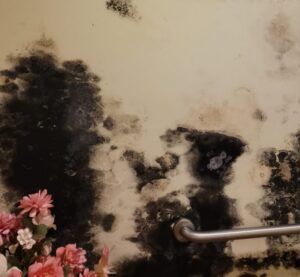Will Mold Die on Its Own?
Or does it always have to be removed?

Written By Rinea Blanchard
Written and fact-checked by an industry expert. ✔️

In general, no, mold won’t die out on its own. The more time you give to the mold, the more it will grow. It will eat more and more of the surface it’s on.
Not only are you potentially exposing yourself to health risks by just letting mold die on its own but your property can also be severely damaged as well.
Why Won't Mold Die Out?
Mold grows when there is a moisture source, like a pipe leak, combined with organic material, like drywall or carpet.
For as long as this moisture source is not dealt with, mold will keep eating up organic materials around it.
If you see mold in your home, you should deal with the problem immediately. Putting it off will likely just cause more problems down the line.
What to Do About Mold?
So the first and most important step in removing mold is to find and remove the water source. This might mean fixing that leaking pipe, roof damage, window leaks, or another source of moisture causing the issue.
Even high indoor humidity can be enough to sustain mold, so using a dehumidifier, running exhaust fans, and improving ventilation can make a big difference in that case.
Once the moisture problem is resolved, the existing mold must still be cleaned or removed.
Porous materials like drywall, carpet, or insulation often need to be replaced if they are heavily contaminated, while non-porous surfaces such as tile or metal can usually be scrubbed with detergent and water.
If you’ve got a mold problem that you can’t or don’t know how to handle yourself, please call Superior Contract Cleaning to help resolve it for you.
